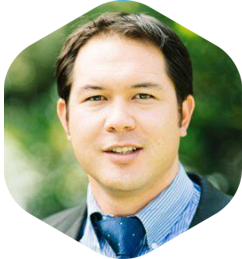About
Ulana Insights
***Note Ulana Insights is non-operational from November 2020 as Mike McCaffrey has taken a position as the Regional Manager for East and Southern Africa at the United Nations Capital Development Fund (UNCDF)***
Established in 2016, Ulana Insights provides advisory services to those using the power of technology to improve people’s lives in rural and low-income communities. It is a modern approach to international development, which supports businesses building digital tools to deliver knowledge, connect communities, and create economic opportunities.
The potential for these progressive technologies is quite exciting. Adaptive learning platforms can already customize curricula from student interactions. Digital finance systems connect people to markets and help them manage their money. Remote sensing technologies forecast weather for farmers and chat groups help them trade advice to improve yields.
While it is easy to recognize the potential of technology, it is almost always a struggle to implement cutting edge systems in developing world contexts. The most commonly cited issues are the lack of infrastructure (electricity, roads, and GSM towers), or the low penetration of hardware like smartphones and other internet enabled devices.
These are real impediments that limit the impact of technology, but they are by no means the hardest problems we face. Those of us working in financial inclusion have shown that hardware and infrastructure problems can and will be solved. We have built mobile money and agent banking systems that broadcast financial services over mobile phone networks to over a hundred million people in the developing world.
The more complicated challenge is how to build products, and delivery channels that are intuitive enough that people with little formal education understand them, that solve real problems they face, and that garner their trust. The real issue is designing technology so it feels like a wise mentor or a friendly neighbor. These goals are difficult enough that mobile money systems still strive to achieve them after over a decade of development.
However, many important lessons have been learned about strategies to deliver public goods with private sector bottom-lines. This is an exciting time, because this expertise is being employed by technology companies working in inclusive fintech, social enterprises selling PAYG solar irrigation systems, as well as adjacent development sectors like humanitarian aid, agricultural development, digital identity, education and health.
Ulana Insights uses a modern approach to international development, which supports businesses building digital tools to deliver knowledge, connect communities, and create economic opportunities. Ulana Insights embraces this dynamic and hopeful approach to progressive development. The word “Ulana” means “woven” in Hawaiian. It represents the work the company does to weave technological tools into aspiring communities and fuse the knowledge from a diversity of sectors together into new solutions.
Financial Technology Adviser,
Mike McCaffrey
Mike McCaffrey has field experience in over 25 countries around Africa, Asia, the South Pacific and Latin America. He also holds a broad interest in how technology can be best used to improve the quality of life in the developing world. His expertise is in digital finance (mobile money & agent banking) and the focus of his work is on the strategic operations of agent networks and product design for low-income customers.
Ulana Insights was founded by Mike in 2016. Through his work there, he advises the World Bank (CGAP) on various financial technology projects, is a member of the United Nations Roster of Experts on Digital Finance and Payments, serves as faculty for DFS Labs and the Boulder Institute of Microfinance, and mentors various inclusive fintech organizations.

Previously, Mike worked for MicroSave to launch and lead The Helix Institute of Digital Finance in Nairobi, Kenya. With support from the Gates Foundation, Mike built the Helix Institute brand, launched operations in eleven countries across Africa and Asia, recruited a team of 18 industry professionals and raised US$ 5.6 million dollars in additional capital from the World Bank, United Nations, and Financial Sector Deepening Africa (FSDA).
Helix conducted the largest research project in the world on mobile money agents (interviewing over 26,000 agents in its first three years) and built a battery of courses in the strategic operations of digital finance. Topics included: building an agent network, digital product development, risk and fraud management, and digital microfinance. Helix successfully trained hundreds of bankers and telecom professionals from around the developing world.
Before moving to Kenya, Mike worked for the United Nations South Pacific regional office as the Financial Inclusion Technical Specialist. He coordinated closely with Central Banks to design policies that allowed financial innovation without introducing systematic risk, drafted national financial inclusion strategies, and managed national committees on financial inclusion. Further, he helped manage a grant facility which funded the first mobile money deployments, and microinsurance products in the region.
Mike started his career as a Peace Corps volunteer in Bolivia, living with no electricity in a subsistence farming village high in the Andes. He worked with village weaving associations to build small businesses, and supported the development of community tourism projects. Mike then worked for the Peace Corps, advising other volunteers around Bolivia, before transitioning into the microfinance sector. At Innovations for Poverty Action (IPA), Mike was a regional associate helping microfinance organizations evaluate and improve their strategic operations.
Between advisory roles, Mike is a travel writer and wildlife photographer. He has traveled to over 85 countries, including taking a road trip through 26 states in America in 2012, and a 15-month road trip through 16 countries in Africa in 2016-17. His work is published through his company: Nomadic by Nature.
Mike attended the Woodrow Wilson School at Princeton University, receiving a master’s degree in Development Economics & a graduate certificate in Science, Technology & Environmental Policy (STEP). He also holds B.A. degrees in Economics & Psychology from the University of California and studied abroad at the National University of Singapore. He speaks English, conversational Spanish, and is busy learning French.

